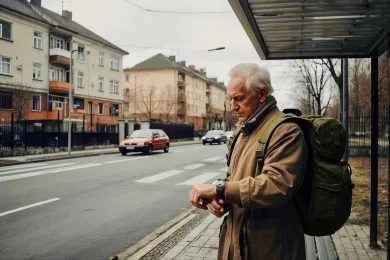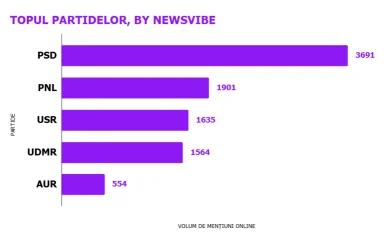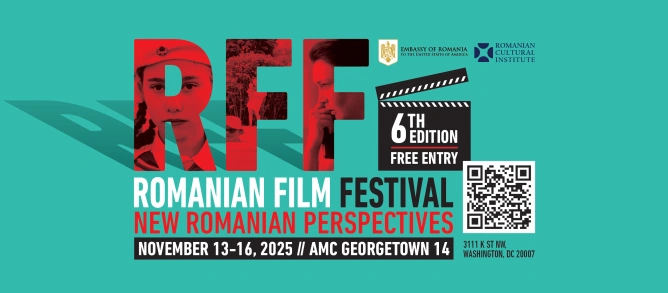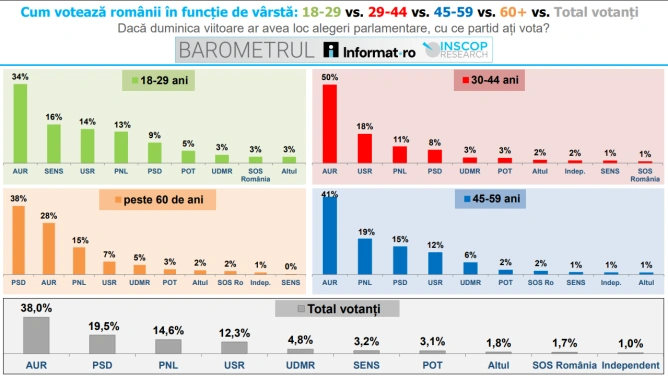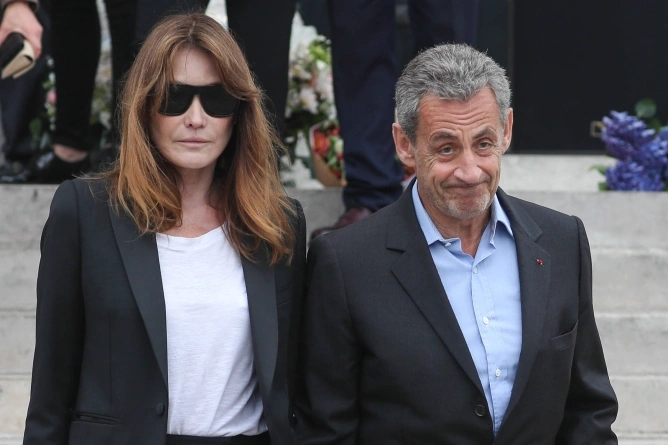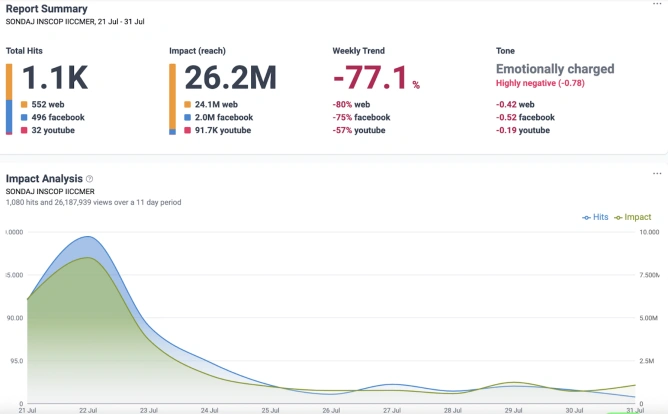
A recent opinion poll conducted by INSCOP Research, in partnership with the Institute for the Investigation of the Crimes of Communism and the Memory of Romanian Exiles (IICCMER), has sent shock waves through the public space, revealing a surprising perspective of Romanians on the communist past. According to data published in July 2025, an overwhelming 66% of Romanian citizens believe that Nicolae Ceausescu was a "good" leader for the country. This result, part of a wider sociological survey, contrasts sharply with the historical memory of the repression, penury and cult of personality that marked his regime and has generated a still ongoing debate in the public space about nostalgia after communism. With the help of NewsVibe, an AI media monitoring platform, we explore the echoes of this survey and the debate stimulated in the digital environment, identifying the main topics of discussion, the vectors of influence of the online conversation and assessing the public tone of the reporting.
The topic produced a volume of approximately 1100 articles and social media posts, with a total estimated impact of over 26 million views, peaking on July 22 (almost 9 million estimated views).
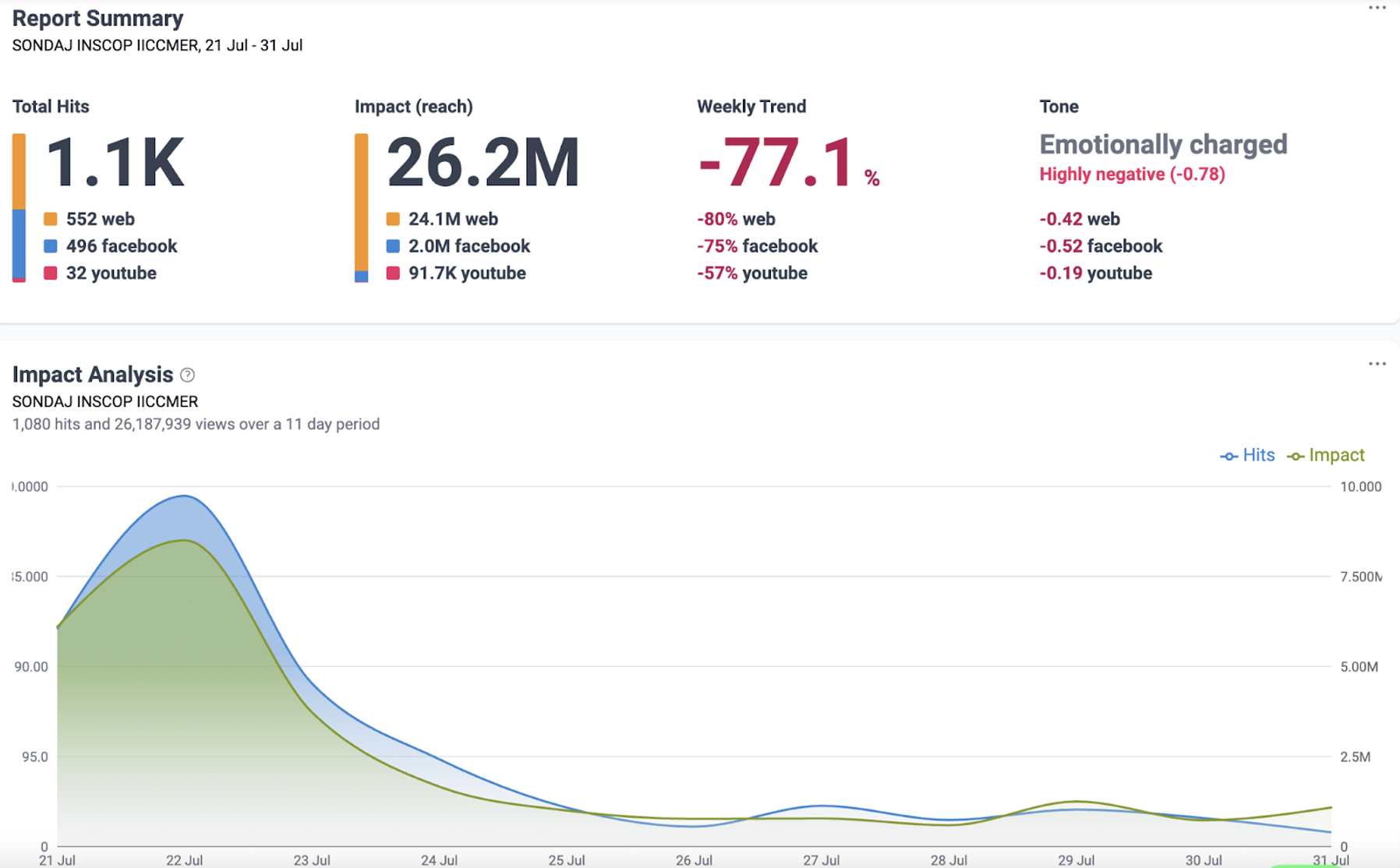
Graphic NewsVibe. Trends in the number of mentions of the INSCOP - IICCMER survey and their total impact between July 21-31
By means of semantic network analysis, through which NewsVibe maps the structure, communities and connections within an online conversation, we obtain a revealing picture of the topics debated in the digital environment starting from the publication of the research results; thus, the central cores of the discussion are organized around four main segments:
- The central area of the debate on the survey contains the key thematic nodes (Romania, INSCOP, Nicolae Ceaușescu, Romanians), the central concept under examination - communism, as well as the names of two public figures: the main figure in the political-institutional space who commented on the results, the president Nicușor Dan, and the director of INSCOP, the main vector of "translation" of their meaning, Remus Ștefureac. Facebook appears as a distinct node within the semantic network because it is the platform the president used to make his comment public.
- The second segment of the debate is directly related to the reception of the poll in the political arena and how the parties' messages or comments about them (AUR, PSD, USR) integrated the topic of the reporting on the communist regime.
- A separate level of the discussion focused on the institutional level, with a clear delimitation of the main actors that supported the research, INSCOP and IICCMER (the latter appearing in the public space through two slightly different names, used in parallel by digital sources).
- A distinct micro-segment, around nodes such as Russia and Călin Georgescu, is constituted by the debate about how Ceausescu nostalgia connects to broader, sovereignist currents and potentially to pro-Russian geopolitical narratives.
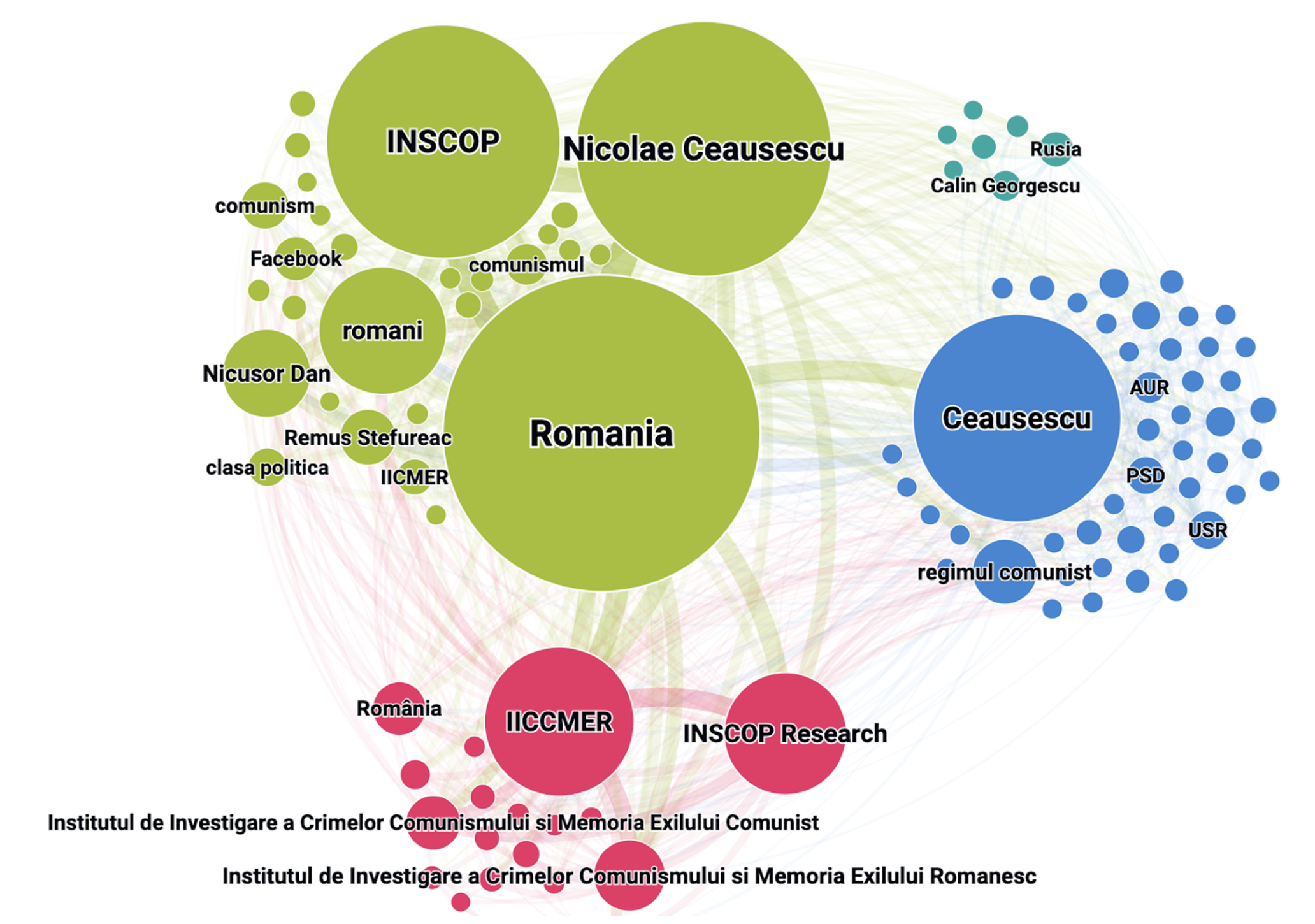
Grafic NewsVibe. The semantic network of the online conversation about the INSCOP - IICCMER survey between July 21-31
The NewsVibe sentiment analysis, based on a high-accuracy linguistic processing AI engine, also identified other nuances of the discourse about the survey and the public debate thus triggered, categorizing the tone around the central entities.
Thus, we can see that the name Ceaușescu appears prominently with both positive connotations (derived from the multiple headlines associating his figure with the "appreciation" of Romanians, thus a favorable juxtaposition) and negative connotations (due to post-publication comments). Other concepts mentioned in a negative context, in the general picture of this debate, are Russia, the communist regime, communism, the Securitate, Stalin, or even the political class, indicating directions and sub-themes of the argumentative lines that structured the discussion.
Among the entities positively known, the name of Remus Ștefureac stands out, who warned about the phenomenon of the "professional", skillful and sustained mythologization of Ceaușescu on social media platforms such as Facebook and TikTok, through which he became a "star" perceived as a "good leader".
The concepts that were positively mentioned included "democracy", "Romania" and "democratic regime".
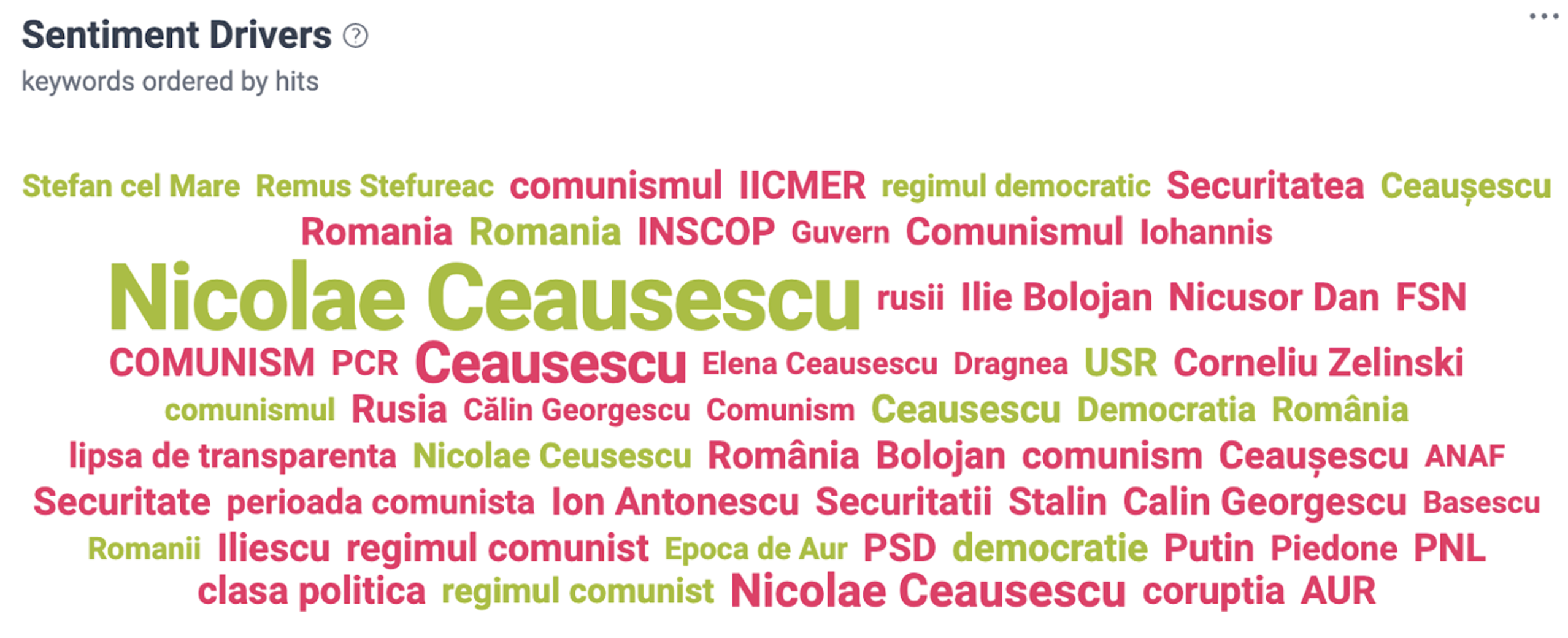
Graphic NewsVibe. Top entities mentioned in a positive (green) or negative (red) context when referring to the INSCOP - IICCMER survey, July 21-31
Sentiment analysis applied to the entire online conversation indicates an overall emotional tone (with a below-average percentage of neutral mentions, suggesting a high intensity of debate and a climate of controversy), dominated by a sizable percentage of negative mentions (29%), with only 2% of references in a positive tone.
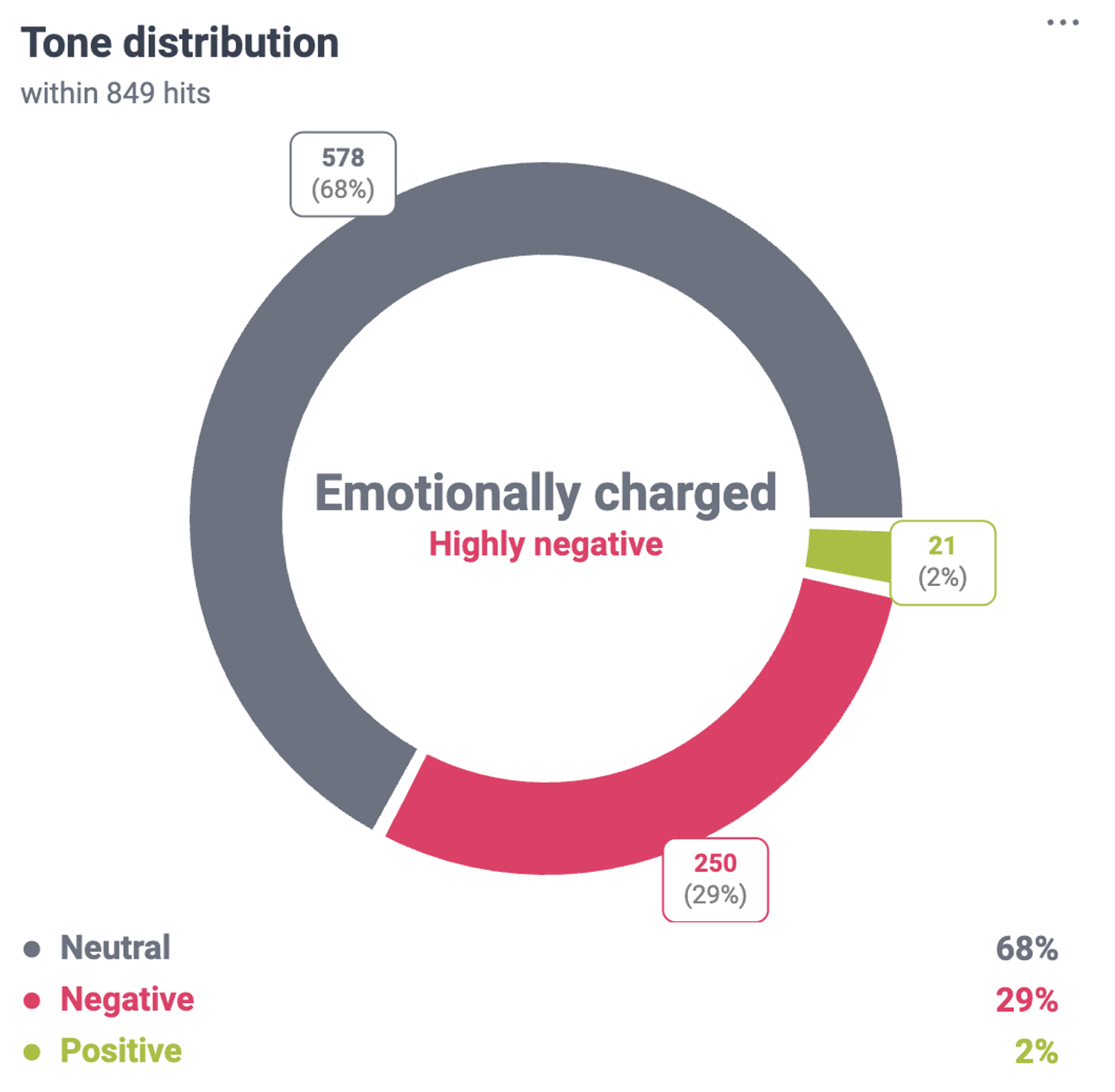
Grafic NewsVibe. Automatic evaluation of the tone of the online conversation about the INSCOP - IICCMER survey between July 21-31
The analysis of the digital conversation surrounding the INSCOP poll functions as a veritable X-ray of Romanian society, revealing the existence of a shocking reservoir of nostalgia for the mainstream debate, but also the strength of the critical counter-reaction it provokes. The overall negative tone of the debate and the clear separation of the poles of conflict - democracy versus communism and, secondarily, isolationism versus the Western path - emphasize that historical memory is an active battleground, and narratives about the past are constantly contested, re-evaluated and used as ammunition in the battles of the present.
